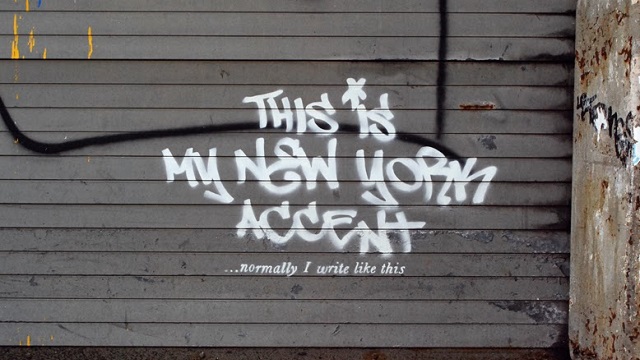Obamacare is Settled Law Like Climate Change is Settled Science
Any theory worth its salt, or any law worthy of the name, should welcome challenge.

Sign up for Big Think on Substack
The most surprising and impactful new stories delivered to your inbox every week, for free.
This article originally appeared in The Daily Caller. You can read the original here.
“The best way to get a bad law repealed,” Abraham Lincoln advised, “is to enforce it strictly.” Republicans who wish to undo Obamacare may hope for a milder remedy, but Barack Obama’s re-election, along with the imprimatur of the Supreme Court, have given rise congressional Democrats’ ubiquitous defense of the legislation: It is the settled law of the land.
The huffy finality with which this is commonly pronounced is oddly familiar. On what other issue do we hear that debate is closed? More on that below.
What is “settled law,” precisely? As Professor Gerard Magliocca of Indiana University recently wrote: “Lawyers use the term ‘settled law’ to describe court decisions that clearly establish a rule or a doctrine. Yet settled law also refers to legal actions that are accepted by society.”
In the summer of 2012, the Supreme Court upheld the constitutionality of Obamacare’s individual mandate and, to the casual observer, this would seem like an end to the law’s judicial challenges. But this is just one of the legal concerns to which the legislation has given rise.
For example, as attorney Andrew C. McCarthy and others have noted, if the Obamacare mandate is a tax, per Chief Justice John Roberts, then the fact that the law was written in the Senate presents a problem. New taxes, and indeed all “money bills,” must originate in the chamber closest to the people: the House of Representatives. This is a function of Article I, Section 7 of the Constitution (“All bills for raising revenue shall originate in the House of Representatives; but the Senate may propose or concur with amendments as on other Bills”), derived from centuries of tradition, dating back to King Charles II, if not the Magna Carta of 1215.
On this count alone, notwithstanding persistent opposition to Obamacare among the public on which it has been inflicted, the law is not settled.
But let us suppose, for a moment, that Obamacare were crafted and passed with impeccable adherence to every legal tradition right back to Runnymede; and let us further suppose that Obamacare’s recent bump in popularity on the heels of the government shutdown brings its approval rating out of the 30s. Would that render Obamacare inviolate and “settled”?
Lots of inane things are and have been the “law of the land.” At a Massachusetts wake, mourners are prohibited by law from eating more than three sandwiches. In Alabama, it is illegal to wear a false mustache that causes laughter in church. And that’s before we consider that slavery, segregation and the restriction of voting rights to white males were all once the “law of the land.”
Law is never “settled” just as science is not. They are both in constant flux, as new realities emerge.
To this, some might say, “Ah-ha! You are citing the settled nature of old law – the Constitution and beyond – to suggest that law can never be settled.” That’s fair enough, but the US Constitution has been amended and interpreted many times to change its practical applications. Why should Obamacare be immune to such treatment? Indeed, President Obama hasunilaterally amended the law several times already, absent any legal authority to do so, which begs the question why it seems egregious that duly elected members of Congress may wish to write some changes of their own, perhaps including a repeal.
But this “settled law” stuff is merely the anodyne expression applied to the current crisis (much like the “clean” spending bill Democrats have demanded). It is emblematic of the Left’s called-it, stamped-it, no-erasies, Black Magic, infinity-plus-one approach to policy. To wit, once they get the result they want, it’s frozen in carbonite like Han Solo and hung in Jabba the Hutt’s palace, with no hope of rescue by rebel forces.
And that’s what seems so familiar about this (the freezing and carbon twigged our memory, and Jabba’s palace put us in mind of Al Gore’s stately pleasure-dome). To its supporters, Obamacare is a closed case akin to the “settled science” of climate change.
Attendant to both, of course, is the anger. That is, the spittle-flecked fury directed toward those who dissent. Born of a Manichean worldview, one wishes its adherents would consider the possibility that people oppose Obamacare or question man-made global warming out of something other than a desire to deny health coverage to the poor or watch the world burn.
In addition, imperviousness to reality and refusal to countenance opposing views are common traits. Obamacare remains unpopular and is thus far a mess; similarly, despite decades of warnings that we are one SUV away from birds bursting into flames in mid-air, there has been no increase in global temperatures for at least 15 years. These are facts that can be advanced, and considered, in good faith.
Ironically, many people who embrace atheism will brook no deviation from environmental liturgies, and laud the exclusion of such heresy from civilized discussion. Likewise, they will protest or bring suit to maintain the unblemished secularism of the public square, while insisting their faith-based interpretations of nature be foisted on every schoolchild in America.
In such a mindset, everything is open to interpretation, personal belief, free expression – except climate change and Obamacare. Those matters are “settled” and if you offer a differing interpretation or belief, you are a fool, or in the pay of Big Oil, and probably a racist.
There is no need for this. Any theory worth its salt, or any law worthy of the name, should welcome challenge. “Question Everything,” as the bumper sticker says. Americans, who enjoy the fruits of a nation founded on an idea, should not foreclose hearing the ideas of others.
Furthermore, in a nation where all are meant to be equal before the law, legislation ought to apply evenly to everyone. If the president wishes to exempt businesses and other favored groups from law that is “settled,” then this relief ought to apply to regular people, too. Similarly, if environmentalists insist upon restrictions and regulations for the rest of us, they should hold themselves to the same standard.
Significant to Obamacare, the politicians who passed it have effectively liberated themselves from its clutches. Why should such a thing be a law? Those who reference our legislative system in arguing for the “settled” nature of Obamacare should consider whether laws that bind the citizenry but not Congress are consistent with the American way. Who works for whom, exactly?
“Change is the law of life,” observed John F. Kennedy, another president to whom Obama aspires. If Obamacare is indeed a bad law, perhaps Lincoln’s prescription is its only remedy. Then again, faint hope though it may be, Democrats could embrace JFK’s nostrum that some things are not so settled after all.
Image courtesy of Shutterstock
Sign up for Big Think on Substack
The most surprising and impactful new stories delivered to your inbox every week, for free.





